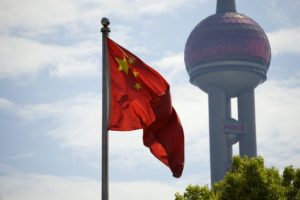
The top U.S. audit regulator has signed an agreement with China that marks the first step toward gaining access to complete inspections and investigations of public accounting firms headquartered in mainland China and Hong Kong.
The Public Company Accounting Oversight Board inspects and investigates public accounting firms in more than 50 jurisdictions around the world, consistent with its mandate under the Sarbanes-Oxley Act. But for more than a decade, positions taken by authorities in the People’s Republic of China (PRC) have obstructed the PCAOB’s access to completely inspect and investigate registered public accounting firms in mainland China and Hong Kong.
The PCAOB received a leg up in 2020, when Congress passed the Holding Foreign Companies Accountable Act (HFCAA), which called on the Securities and Exchange Commission to ban trading of U.S.-listed securities of China-based companies if obstacles to PCAOB access persist. “The U.S. Congress sent a strong message with the passage of the [HFCAA] that access to the U.S. capital markets is a privilege, not a right,” stated PCAOB Chair Erica Williams. “The PCAOB has been working to execute our mandate under the law.”
As part of this ongoing effort, the PCAOB signed a “Statement of Protocol” with the China Securities Regulatory Commission and the Ministry of Finance of the People’s Republic of China this week. “On paper, the agreement…grants the PCAOB complete access to the audit work papers, audit personnel, and other information we need to inspect and investigate any firm we choose, with no loopholes and no exceptions—but the real test will be whether the words agreed to on paper translate into complete access in practice,” Williams said.
According to the PCAOB, the Statement of Protocol grants the PCAOB complete access in the following three important ways:
- The PCAOB has sole discretion to select the firms, audit engagements and potential violations it inspects and investigates—without consultation with, nor input from, Chinese authorities.
- Procedures are in place for PCAOB inspectors and investigators to view complete audit work papers with all information included and for the PCAOB to retain information as needed.
- The PCAOB has direct access to interview and take testimony from all personnel associated with the audits the PCAOB inspects or investigates.
Last year, the PCAOB said it determined the positions taken by PRC authorities prevented it from inspecting and investigating in mainland China and Hong Kong completely. The PCAOB must now reassess its determinations by the end of 2022. The PCAOB inspection team has been directed to finalize their preparations to be on the ground by mid-September to “put this agreement to the test,” Williams said.
“Our dedicated teams of professionals have been preparing for this moment for months, and they are ready to work swiftly, but thoroughly, to carry out our inspections and investigations,” Williams added. “Whether our teams are able to complete that work without obstruction will inform the PCAOB’s determinations at the end of this year.” ![]()
Jaclyn Jaeger is a contributing editor at Internal Audit 360° and a freelance business writer based in Manchester, New Hampshire.


